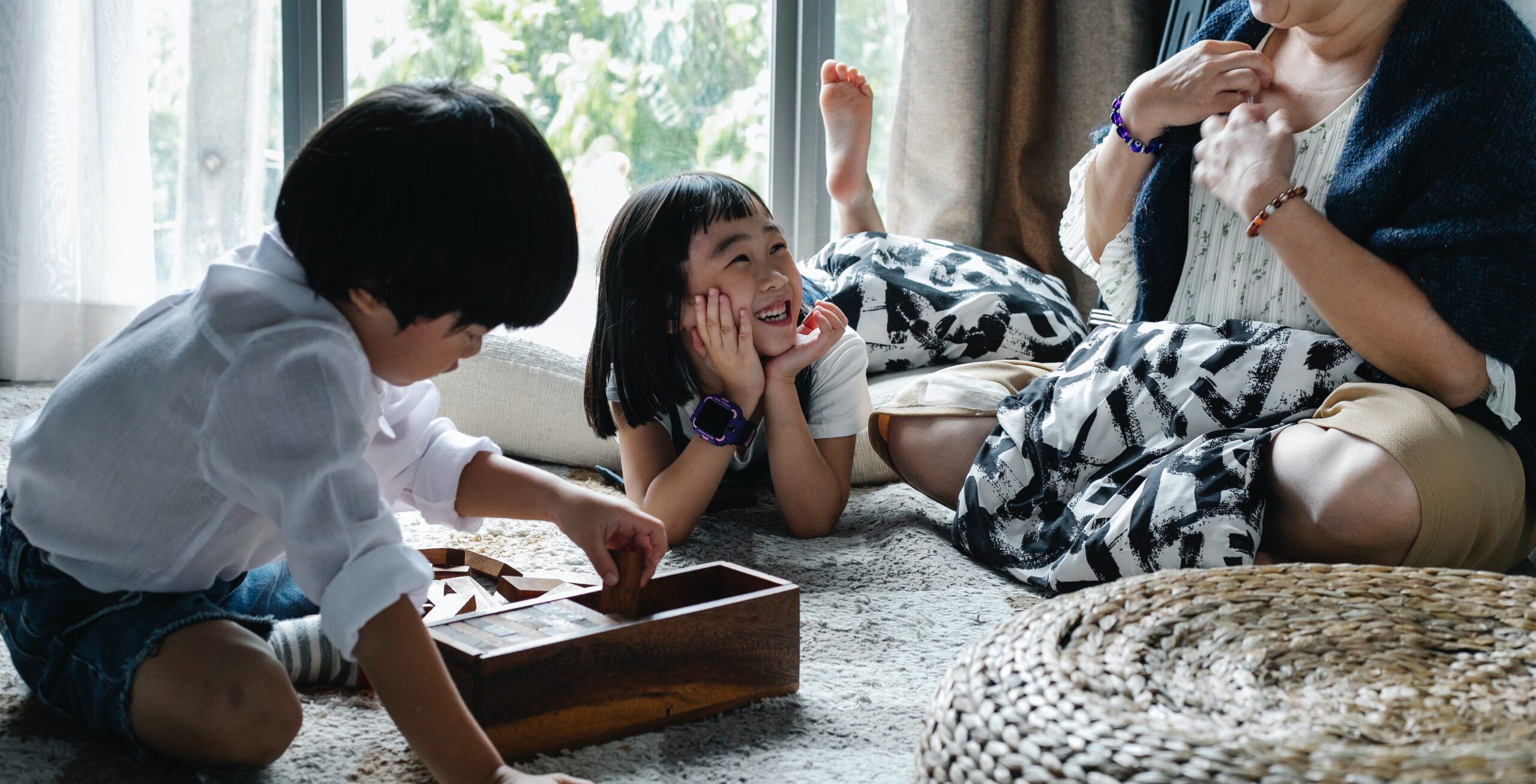Family Oriented: What It Truly Means
Being family oriented means that a person places a high value on their family relationships and prioritizes spending time with and supporting their family members. It means that family is important to them and they make an effort to keep their family close and connected.’
In this article, we will explore in-depth what it truly means to be family oriented.
- Family Oriented Meaning
- Examples of Family Oriented Cultures
- Being Family-Oriented: The Good & The Bad
- What Does It Mean To Be Family Oriented?
- 1. You prioritize spending time with your family members over other commitments, such as work or social activities.
- 2. You appreciate the value of relationships
- 3. You Love Kids And Love Nurturing Little Things
- 4. You frequently talk about your family members
- 5. You value family traditions and want to maintain them.
- 6. You are supportive of your family members’ goals and aspirations.
- 7. You are willing to forgive and reconcile with family members after conflicts.
- 8. You Draw Strength From Your Family
- Related Posts
- Explore Our Products
Family Oriented Meaning
Family-oriented people often have strong bonds with their parents, siblings, grandparents, and extended family members. They enjoy spending time with their loved ones, whether it’s sharing a meal, watching a movie together, or simply having a conversation. They take an interest in their family members’ lives, and are there to provide emotional support and encouragement when needed.
A family-oriented person also understands the importance of family traditions and rituals, and may make an effort to continue them across generations. They may also prioritize family events and gatherings, such as weddings, birthdays, or holidays, and make an effort to attend or organize them.
Being family oriented can also mean that a person is willing to make sacrifices for their family. They may put their family’s needs above their own, and be there to help out in times of crisis or need. They may also prioritize their family’s financial well-being, and make decisions based on what’s best for the family as a whole.
Overall, being family oriented is about valuing and prioritizing the relationships and connections that we have with our loved ones. It means cherishing the memories we create together, supporting each other through good times and bad, and recognizing the importance of a strong and loving family unit.
Shop Galaxy print arts crafted with imagination
Examples of Family Oriented Cultures
Indian Culture: Family values are an integral part of Indian culture and society. The Indian family structure is typically patriarchal, with the father being the head of the family and responsible for making decisions on behalf of the family. Family members are expected to respect and obey their elders and to place the needs of the family above their own individual needs.
Another important value is the concept of joint family. In a joint family, several generations of a family live together under one roof, and everyone contributes to the household chores and responsibilities. Joint families provide a strong support system for family members, and help to maintain close ties between family members.
Family also plays an important role in the Indian marriage system. Arranged marriages are still very common in India, and parents may have a strong influence on who can be the spouse of their children. The emphasis is not only on finding a compatible spouse, but also on finding someone who will fit into the family and be a good partner to their son or daughter.
Mexican Culture: Not just Mexican, but the entire Latin American culture places family in the center of social life. They have the concept of “Familismo“, which is essentially “dedication, commitment, and loyalty to one’s own family”. Extended families often live close to one another, and there is a strong emphasis on hospitality and community. Family gatherings are common, and celebrations such as weddings, quinceañeras, baptisms, and Christmas are important occasions that people should never miss.

It’s quite common in all family-oriented cultures to have a deep sense of hierarchy. Everyone is assigned a specific “rank” in their family from the very first moment of their life, and they are expected to behave accordingly. Elders are respected, sometimes even revered. Seen as leaders, their opinions and ideas are highly valued, especially during tough times in life.
Japanese Culture: In Japan, the conventional family structure is known as “Kazoku,” which typically comprises a mother, father, and their children. In the past, it was customary for three generations to reside together in one household. Men are traditionally viewed as the primary breadwinners, while women are responsible for managing household finances and caregiving. Children also prioritize their education and maintain a strong connection with their school.
Italian Culture: Family, or “famiglia,” is a defining characteristic of Italian culture and traditions. Italians are extremely family-oriented and it is common for extended family members such as grandparents, aunts, uncles, and cousins to live together. Even if they do not live together, family members are typically located within walking distance or just a short drive away.
Italians typically gather together at least once a week, often on Sundays, for a large family dinner at someone’s home. In addition, they frequently get together for various occasions throughout the week, including casual dinners, catching up, birthdays, game nights, running errands, and more. Celebrating these occasions provides an opportunity for Italians to spend quality time with their loved ones. The culture of family in Italy is deeply rooted in blood and bonds, and “la famiglia” is considered everything.

An interesting movie that depicts this family-oriented mindset is The Godfather, an adaptation from a novel with the same name by Mario Puzo. Along with highlights about the darker side of organized crime, the film perfectly portrays the importance of loyalty, honor, and respect within the patriarchal Italian-American family. The central characters, the Corleone family, prioritize their family above everything else, and they are willing to go to great lengths to protect and defend their family members.
Being Family-Oriented: The Good & The Bad
Being family-oriented is amazing. Family-oriented individuals often have a built-in support system, which can provide emotional support during tough times. This sense of security carries into so many other aspects of your life, giving you the inherent comfort you need to thrive and become a more healthy invidividual.
Also, family is essentially just a group of people, and human groups bond through shared values. It makes you feel “belonged”, and, in many ways, shapes your personality in ways you couldn’t have ever imagined. For example, an individual’s self-confidence can be positively or negatively impacted by their family interactions. For instance, a cohesive and communicative family can help children develop a strong sense of self-confidence. When children are allowed to make their own choices and are encouraged to pursue their interests, they tend to gain a greater sense of individuality. On the other hand, if a family is frequently critical of a child’s performance, it can lead to diminished self-esteem.
Tracing further back, connecting with your family also means connecting with your origin, your ancestors, lineage, and bloodline. Having a family-oriented mindset often involves creating and maintaining family traditions, such as holiday gatherings or special outings. These traditions can help create lasting memories and strengthen family bonds that last for hundreds of years.
Shop DMT print arts crafted with imagination
However, all things have their dark sides. A dysfunctional family can destroy a person just like how a healthy family lifts an individual up. Being family-oriented is great, but when a family is too close-knit, it can create an overdependence on family members for emotional support and decision-making. This can limit an individual’s ability to develop their own identity and independence. Imagine having to go through 2-3 layers of approval before doing something. It could have been done out of respect for the elders, but over time, this kills spontaneity.
In some cases, a family-oriented culture can create pressure for individuals to conform to family expectations and values, even if they conflict with their own personal beliefs and goals. If an individual with different, not necessarily bad, characteristics, they become the “black sheep” of the family. Such differences in perspectives may evolve into conflicts if left unresolved.
It’s also found in family-oriented cultures that there is a limit to an individual’s exposure to diverse perspectives and experiences, which can hinder personal growth and development. Family-oriented cultures usually come with a rigid hierarchy that everyone must abide by. Approvals must be made from the higher-ups. If the people in authority declines any new perspectives and ideas, the lower-rank people don’t have much power to influence.
What Does It Mean To Be Family Oriented?
Have you asked yourself “Am I family-oriented” ? Being family-oriented simply means being close and connected with your family. Here are 8 signs that you are a family-oriented person, and why you should be proud of that:
1. You prioritize spending time with your family members over other commitments, such as work or social activities.
The family-oriented individual place a high value on maintaining and nurturing your family relationships, and are willing to make sacrifices in other areas of your life in order to do so. You choose to attend family events or gatherings, like holidays or birthdays, over work obligations or social activities with friends. It could also mean that you make a concerted effort to spend quality time with family members on a regular basis, whether that’s through phone calls, video chats, or in-person visits.
Prioritizing family in this way can help strengthen bonds between family members, foster feelings of connection and support, and provide a sense of emotional fulfillment and purpose. However, it’s also important to strike a balance between family commitments and other responsibilities, such as work or personal goals, in order to maintain a well-rounded and fulfilling life.
2. You appreciate the value of relationships
Relationships are an integral part of our lives. Whether it’s with family, friends, or colleagues, we interact with people daily, forming connections that shape our experiences and impact our well-being. Appreciating the value of these relationships is key to building and maintaining meaningful connections.
The value of relationships lies in their ability to provide us with a sense of belonging, love, and support. When we invest time and effort into our relationships, we create a bond that is both fulfilling and enriching. A positive relationship can be a source of comfort during challenging times and a catalyst for personal growth and development.
Family is one of the most significant relationships we have, and it is essential to appreciate its value. Family provides a sense of identity, history, and culture. They are there for us when we need them, and they provide a support system that we can rely on. However, maintaining positive relationships with family members requires effort and commitment. We must prioritize spending time with them, communicating effectively, and showing appreciation for their presence in our lives.
3. You Love Kids And Love Nurturing Little Things
Being good with kids is often associated with being family-oriented because it implies having the skills and qualities necessary for fostering positive relationships with children. Family-oriented individuals prioritize the well-being of their family and tend to be invested in creating a nurturing and supportive environment for children.
Children are often considered the heart of the family. Family-oriented individuals understand that children need love, support, and guidance to thrive, and they prioritize creating a positive environment for them.
4. You frequently talk about your family members
Talking about family members can also show that the person is proud of their family and wants to share their accomplishments and successes with others. By frequently mentioning their family members, they may also be seeking validation and support from others for the importance they place on their family relationships.
When someone frequently talks about their family members, it may also indicate that they enjoy spending time with their family and have a positive relationship with them. Additionally, family-oriented individuals may use conversations about their family members as a way to connect with others who share similar values and experiences.
5. You value family traditions and want to maintain them.
Family traditions more than just something you do out of habit every year. In fact, most traditions carry within them extremely deep meanings and values. They are the knowledge and wisdom of the past ritualized. Family-oriented individuals usually are taught to carry on the traditions from a very young age, and they just “know” that that’s what they are supposed to be doing. It has been integrated into their identity.
By valuing family traditions and working to maintain them generations after generations, family-oriented individuals are expressing a desire to honor the legacy of their family and to keep alive the practices, rituals, and values that have been passed down. This can include things like holiday celebrations, religious observances, or family-specific customs, such as preparing a certain meal or gathering in a particular location.
Explore Spiritually Inspired Tee Designs
Shop T-shirt on which creativity thrives, inspiration prospers, and beauty blossoms
6. You are supportive of your family members’ goals and aspirations.
The love for your family translates into a supportive energy for your loved ones. You understand that your family members are more than just a “person”. They come into this world along with you. In the next few decades, you’ll be a great part of their life, and they share so many moments with you.
If you are lucky to be supported by your family members on your journey, it is understandable why you also develop a supportive attitude towards almost everything your family does. “Support” can mean things like providing financial assistance, helping with job searches or applications, or simply offering a listening ear or words of encouragement.
In addition to providing support on an individual level, family-oriented individuals may also work to create a culture of support and encouragement within their family unit. This can involve fostering open communication, celebrating each other’s accomplishments, and creating a sense of shared purpose and motivation.
7. You are willing to forgive and reconcile with family members after conflicts.
When conflicts arise within a family, it can be tempting to hold grudges or to cut off contact with certain family members. However, choosing to forgive and reconcile shows that the importance of maintaining these family relationships outweighs any hurt feelings or disagreements that may have occurred.
Furthermore, being family-oriented means valuing the connections and bonds that exist within a family, even in the face of difficulties. It also involves prioritizing the well-being of the family as a whole, rather than focusing solely on individual needs or desires.
Ultimately, forgiving and reconciling with family members after conflicts is a way of demonstrating a commitment to the family and a desire to work through problems together, which are core values of being family-oriented.
8. You Draw Strength From Your Family
Family members are often the people who know us best and who have been with us through the ups and downs of life. They can provide us with emotional support, advice, and encouragement when we are struggling, and they can also celebrate our successes and achievements with us.
Being family-oriented means recognizing and valuing the strength that comes from these family connections. It means turning to our family members for support and encouragement when we need it, and being there for them in return. When we face obstacles or setbacks, knowing that we have the support and love of our family members can give us the courage and resilience we need to persevere.
In conclusion, being family-oriented is a mindset and a set of values that prioritize the well-being of one’s family and recognize the important role that family plays in our lives. It involves drawing strength from family connections, being loyal to family members, and demonstrating a willingness to forgive and reconcile after conflicts.
Being family-oriented means valuing the love, support, and guidance that comes from our family members and being there for them in return. By prioritizing family connections and relationships, we can create a sense of belonging and unity that can sustain us through the challenges of life. Ultimately, being family-oriented can bring us joy, comfort, and a deep sense of purpose and meaning in our lives.
Related Posts
Explore Our Products
-

 Ethereal Dreamy Mushroom Art: Beyond The Veil$41.50 – $185.70
Ethereal Dreamy Mushroom Art: Beyond The Veil$41.50 – $185.70 -

 Retro Geometric Ethereal Art: Prism Of Truth$41.50 – $185.70
Retro Geometric Ethereal Art: Prism Of Truth$41.50 – $185.70 -

 Geometric Ethereal Art: Cosmic Wisdom Upon This Land$41.50 – $185.70
Geometric Ethereal Art: Cosmic Wisdom Upon This Land$41.50 – $185.70 -

 Ethereal Dreamy Art Canvas Print: On The Road To Vegas$22.33 – $193.93
Ethereal Dreamy Art Canvas Print: On The Road To Vegas$22.33 – $193.93


















